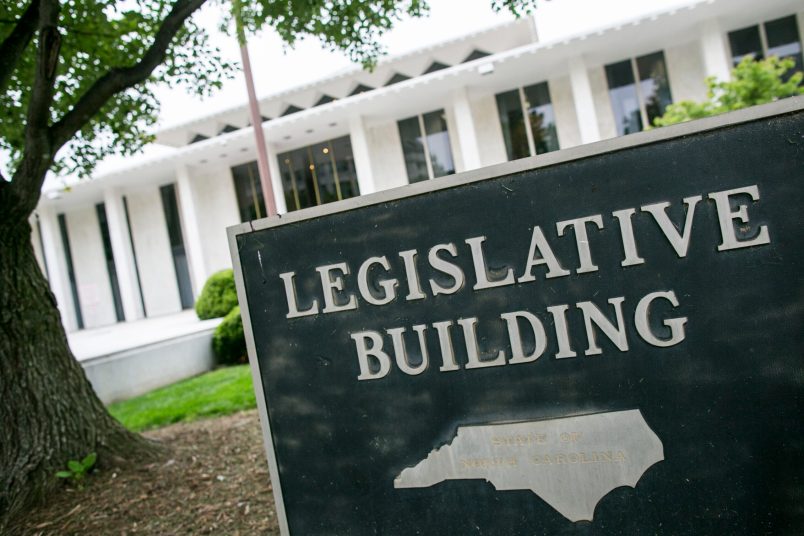North Carolina’s Republican-controlled legislature denied that it lied to a court during a racial gerrymandering case and called for the lawyers that accused them of doing so to be disqualified for their use of files obtained from a now deceased GOP consultant.
The assertions came in a court filing Monday evening in a separate partisan gerrymandering case brought by Common Cause in North Carolina state court. The case challenges a map drawn by Republicans in 2017.
Earlier this month, the voting rights group brought the claims that the legislature had misled a federal court in a racial gerrymandering lawsuit that preceded the partisan gerrymandering lawsuit.
On Monday, the legislature said the allegations were “false and grossly inflated.” The Republicans said that even if there was “any inconsistency” in the statements made in the federal court case, it would “have little to no relevance to this case.” The legislature accused the challengers of “opportunistically dropp[ing] their false allegations into a filing with this Court and promptly circulat[ing] the allegation to the national media for the transparent purpose of scoring political points.” And the legislature doubled down on its effort to block the challengers’ access to files, claiming that their lawyers acted unethically in how they went about obtaining them.
The dispute is one of several that have arisen in high-profile legal cases after the back-up hard drives of the Republican Party’s go-to gerrymandering guru, Thomas Hofeller, fell into the hands of a law firm representing voting rights groups involved in multiple lawsuits. Hofeller died last year, and his estranged daughter alerted the group Common Cause that she had obtained his hard drives, prompting the group to subpoena her for them.
The importance of his files was, however, first revealed last month in the census citizenship case brought in New York, where the challengers there accused two Trump administration-linked witnesses of obscuring key evidence connecting Hofeller to the government’s push to add the question. Additional files connecting Hofeller to the census citizenship issue were flagged this weekend in the lawsuit challenging the question brought in Maryland.
In North Carolina, Hofeller’s files have been used to accuse the legislature of misleading a federal court, as it considered whether to hold a special election in 2017, about how far along lawmakers were in creating a new legislative map to replace a 2011 one that had been deemed an illegal racial gerrymander.
Hofeller’s files showed that that he was done creating almost the entirety of the new maps by the time the legislature represented that it hadn’t even started, the voting rights group said. The court ultimately decided not to hold the special election.
Common Cause also alleged that Hofeller’s files showed that that he was using racial data to draw the replacement maps, despite the legislature’s representation in court that racial data had not been even uploaded to his computer.
The legislature pushed back hard on both claims on Monday.
It argued that GOP lawmakers had represented to the federal court that they were unaware of any work Hofeller was doing on new maps.
“There is a difference between a career map-drawer tinkering on a computer and a legislature deliberating over a redistricting plan with the intent of enacting one into law,” the legislature said. “The representations Plaintiffs identify all pertain to the latter.”
As for the discovery of racial data on Hofeller’s hard drives, the legislature argued that it was only speaking of his work computer the state have given him when it claimed there was no racial data on his computer and that the challengers had not found racial data on the work computer.
Read the filing below:






